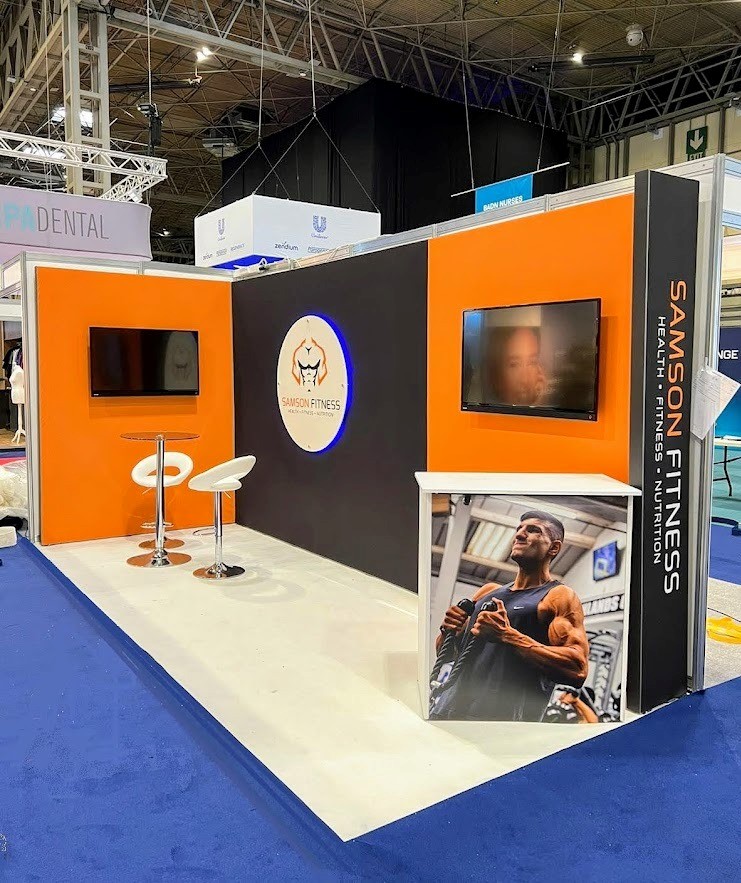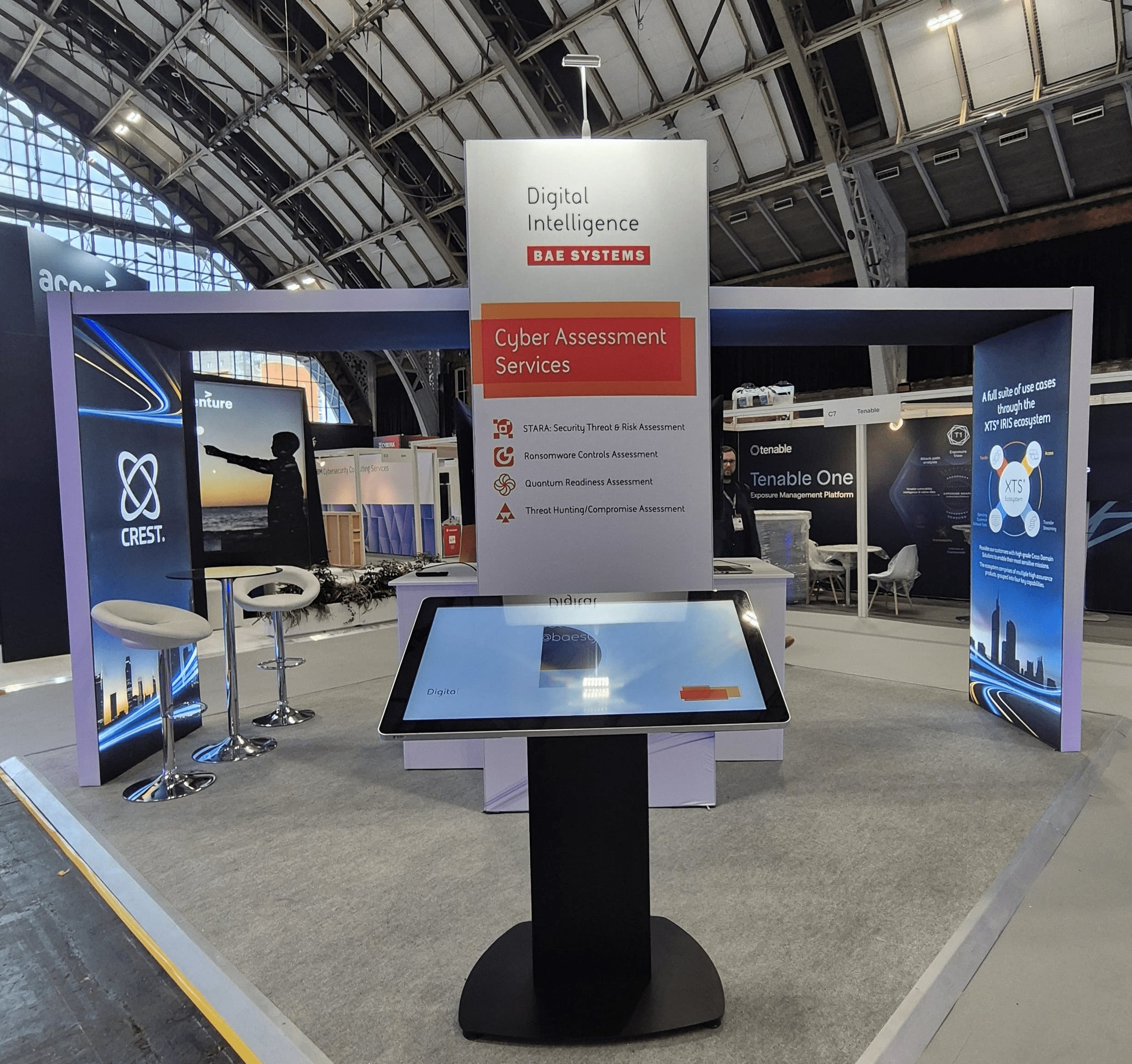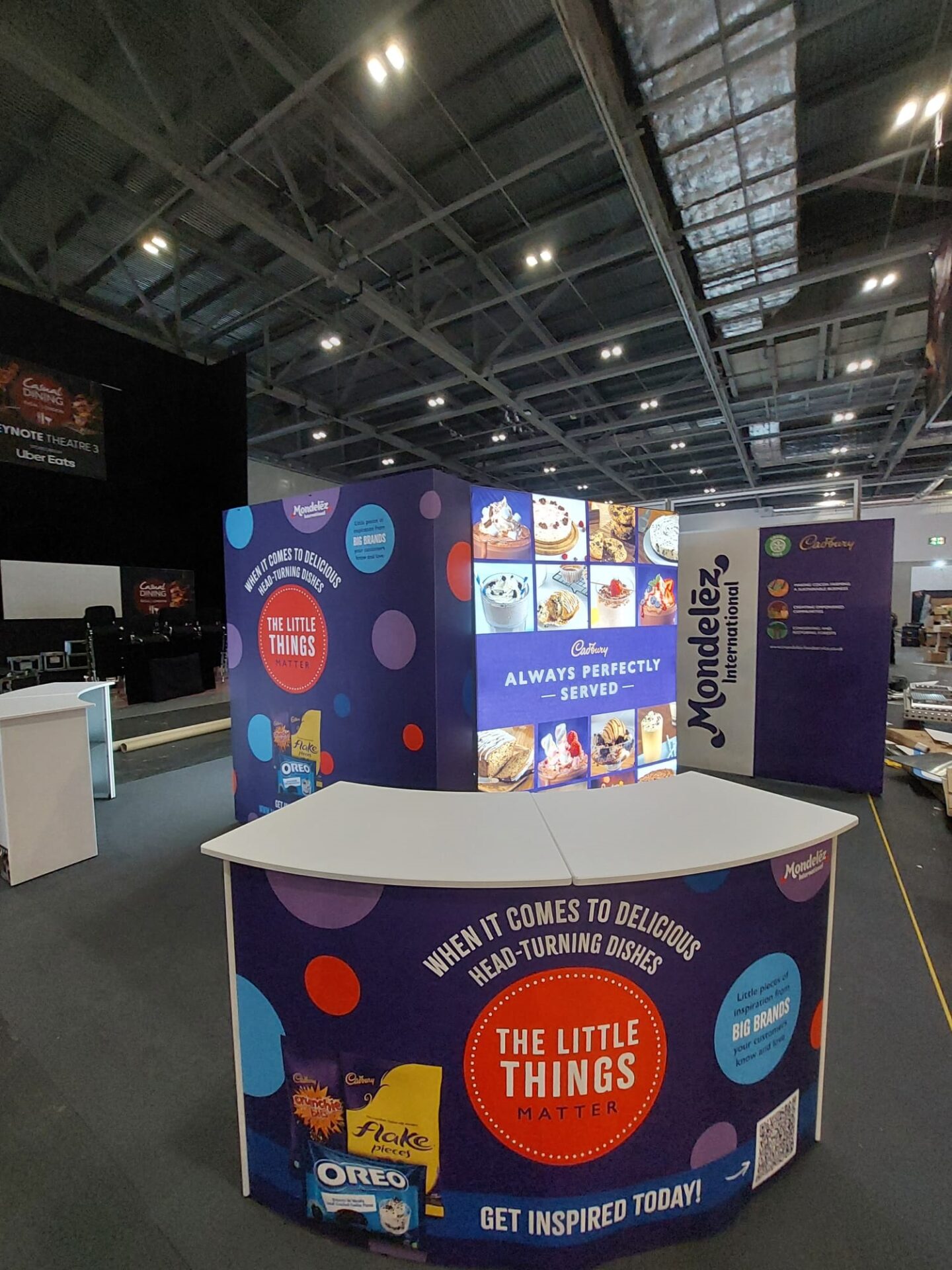Attending an event as a start-up can be a game-changing opportunity for networking, learning, and promoting your new business. Whether it’s a trade show, conference, or networking event the way you prepare and engage can significantly impact your start-up’s growth and reputation.
Without significant preparation, you could find yourself unable to answer specific questions from event attendees, you could find you are unsure how to use your exhibition display stand correctly, or you could find yourself relaying inaccurate information to those looking to purchase your services.
The event for a start-up is a great way to get the ball rolling for your company and signify that you are a vital part of the space your business sits within.
You can do a few things to make your attendance at an event as a start-up much easier and a lot more stress-free. As leading designers and creators of exhibition pop up stands and fully interactive displays, let the Starlight team guide you through the key tips to make your time at the exhibition as a start-up a success.
Set clear objectives
Identify goals: Before you attend the event, define what you want to achieve. Are you there to find potential clients, meet investors, or gain industry insights? Having clear goals will help you focus your efforts effectively.
Research the event: Understand the type of event you are attending and who it is geared towards. Look at the list of speakers, exhibitors, and attendees (if available) to tailor your objectives. Perhaps a quick email introducing yourself and letting them know you are coming could be a good route into building a relationship too. If possible, visit the event the year before so you can get a clearer understanding of how it works.
Preparing for the event
Elevator pitch: Refine your elevator pitch. You should be able to succinctly describe your start-up and its value proposition in a way that is compelling and easy to understand.
Marketing materials: Prepare professional-looking short-form materials, business cards, and possibly a digital presentation. Ensure your branding is consistent and visually appealing.
Pre-event networking: Reach out to other attendees, speakers, and influencers via social media or email before the event. Introduce yourself and set up meetings or coffee catch-ups in advance.
Staffing: As part of your event prep, look at which team members may be your power players. Some might be natural salespeople while others may freeze under scrutiny but be expert planners. Strategise who you need when, and what you need them for so everybody can work to their strengths.
Prepare for all eventualities: You may feel you know all there is to know about your brand and its product(s) but there is always that one question that stumps even your best people. Before the event, hold an event briefing with your team and ask them all to come up with the questions they would ask if they were a customer, in addition, ask them as the experts in their sector, to suggest questions that are relevant to their speciality. With an armoury of answers, you should appear confident and fully knowledgeable of all aspects, even those you may never have considered before.
Test…..test….test: If you are demoing a product, you should make sure it works. But you should also ensure that at all stages of the demo, you can explain what is happening and why. Practise a demo where you can outline your brand, product, benefits, and future developments. Where funding is required, explain how the funding will bring the product to life, or enhance it to improve it.
At the Event
Professional attire: Dress appropriately for the occasion. Your attire should reflect your brand and the nature of the event. We put together a guide for creating a good first impression at an event, check it out to see what could work for you. A hoodie and joggers won’t suit the occasion if you are at a financial services event, but at one for keeping fit, you won’t look out of place!
Active participation: Engage actively by attending keynotes, participating in discussions, and asking questions. This visibility can attract attention to your start-up.
Networking: Use breaks and social gatherings to introduce yourself and your business. Be genuine and curious about others, which will naturally lead to more in-depth conversations.
 Effective event stand management
Effective event stand management
Eye-catching setup: If you have a booth, ensure it stands out and is inviting. Use clear, engaging signage, and consider interactive elements like demos or games to draw people in. Perhaps look at factoring in seating or a lounge space. Wandering around an exhibition can be draining, if you are the exhibitor providing a welcoming rest stop and a useful product, you could become the ideal place for people to visit. Not only will they get their 5 minutes to rest up, but they will also be soaking in your POS, your demos, and any other engaging materials you have on display.
Using our years of knowledge and experience, we design memorable exhibition stands that speak volumes about your brand and what it is doing. We work to your budget, your timeline, and your brand specifications, meaning you can have an event stand created rapidly and affordably. With a variety of event stand types available alongside our bespoke modular units and lightbox displays, there is something for every startup, and if cost is a concern, our reconfigurable exhibition display stands mean you can take it from event to event only ever using the parts you need. Saving you money on multiple designs and builds.
Staffing: Have enough team members on hand to talk to multiple visitors simultaneously. Ensure everyone is well-informed and enthusiastic about your start-up. If you are short of staff you might want to consider agency staffing, this can be useful but does also come with risks, our blog on The Pros and Cons of Agency Staff dives a little deeper.
Collect contacts: Have a system to collect contact information, such as a sign-up sheet or a digital scanner. Follow-up is crucial, so make sure you can keep track of who visits your stand. Lead capture at events is essential to not only securing custom but also keeping relationships between contacts healthy.
Follow-Up
Immediate acknowledgement: After the event, send a quick follow-up email or message on social media thanking new contacts for their time within 24-48 hours of meeting them. There will be many other companies like yours vying for their attention so get it first by being the one they hear from when the event is fresh in the mind.
Organised follow-up: Categorize contacts based on interest level and relevance. Customize your follow-up communications to reflect your conversation and their needs. Some people may have made it clear they are not making a purchase but are keen to learn more, others may be wanting to spend and need a little more information. The follow-up needs to be organised, as sending the wrong message could not only lead to thoughts of unprofessionalism but also make you lose out on the competition.
Persistence and patience: Some contacts might not be ready to engage immediately. Keep them in the loop with regular updates about your start-up and any news that could be relevant to them.
Evaluate and reflect
Post-event analysis: After the event, review whether you met your objectives. Analyse what worked and what didn’t and identify opportunities for improvement. Read more on how to debrief your team correctly.
Feedback: If possible, gather feedback from others about their experience with your brand at the event. This could be through direct questions or via a follow-up survey.
Leverage the experience
Content creation: Use your experiences and the insights you gained at the event to create content such as blog posts, social media updates, and newsletters. This not only engages your existing audience but also attracts new followers.
Plan for the next one: Each event is a learning opportunity. Apply your new insights and feedback to improve your strategy for future events.
By following these guidelines, you can maximize your start-up’s exposure and impact at any event you attend. Remember, every interaction counts, and building genuine, lasting relationships is key to your start-up’s success. For assistance with your exhibition stands, speak to Starlight, we will even design your exhibition stand for free too!

